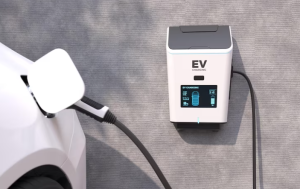
Eligibility Criteria for Senior Citizen Health Insurance
Health insurance for senior citizens is specifically designed to cover individuals aged 60 years and above. However, different insurers may have varied eligibility requirements based on factors such as entry age, medical history, and pre-existing conditions. Below is a detailed look at the eligibility criteria and key factors considered while purchasing a senior citizen health insurance policy.
1. Age Criteria
- Most senior citizen health insurance policies have a minimum entry age of 60 years.
- Some insurers allow coverage for individuals up to 80 years or even beyond with lifetime renewability.
- Few insurers provide policies with an entry age of 50 years for those who wish to secure coverage early.
2. Medical Check-up Requirement
- Many insurance providers mandate a pre-policy medical check-up for applicants above a certain age (usually 60-65 years).
- These check-ups assess existing medical conditions, helping insurers determine the level of risk.
- If significant health issues are detected, insurers may increase the premium, include specific exclusions, or decline the policy application.
3. Pre-existing Disease Coverage
- Most policies cover pre-existing diseases after a waiting period, typically ranging from 2 to 4 years.
- Some insurers offer plans with a shorter waiting period for pre-existing conditions, which may come with higher premiums.
- Chronic illnesses such as diabetes, hypertension, and heart disease may require additional medical evaluations before approval.
4. Co-payment Clause
- Many senior citizen policies include a co-payment clause, requiring the insured to bear a percentage of medical expenses (e.g., 10%-30%).
- Policies without co-payment clauses are available but come at a higher premium.
5. Renewal and Lifetime Coverage
- Most insurers offer lifetime renewability, ensuring continued coverage beyond the entry age limit.
- Policies without lifetime renewability require the insured to shift to a new policy at a certain age, often with fresh waiting periods.
6. Residency Status
- Most insurers require the policyholder to be a resident of India. Some policies cover NRIs, but they may have limited benefits for overseas treatment.
7. Exclusions and Policy Limitations
- Common exclusions include self-inflicted injuries, congenital diseases, cosmetic treatments, and ailments diagnosed within the initial waiting period.
- Some insurers restrict coverage for high-risk individuals, such as those with terminal illnesses or severe disabilities.
Health Insurance for Senior Citizens Eligibility Check List mentioned below :
Eligibility – Typically available for individuals aged 60 years and above. Some plans may have a maximum entry age limit.
Coverage – Includes hospitalization expenses, pre-existing disease coverage (after a waiting period), critical illness cover, and domiciliary treatment.
Premium Costs – Higher than regular Health Insurance for Senior Citizens due to increased health risks. Premiums may vary based on age, health condition, and coverage amount.
Pre-existing Diseases – Most policies cover pre-existing conditions after a waiting period (typically 2-4 years). Some insurers offer plans with lower waiting periods for seniors.
Sum Insured – Ranges from ₹1 lakh to ₹50 lakh, depending on the insurer and the policy. Higher coverage is advisable due to rising medical costs.
Daycare Procedures – Many policies cover medical procedures that do not require 24-hour hospitalization, such as cataract surgery or dialysis.
No-Claim Bonus (NCB) – If no claims are made during a policy year, insurers may offer a bonus in the form of increased sum insured or premium discounts.
Lifetime Renewability – Many senior citizen health insurance plans offer lifetime renewability, ensuring continuous coverage.
Co-payment Clause – Some policies include a co-payment feature, requiring the insured to pay a percentage of the claim amount (e.g., 10%-30%).
Tax Benefits – Premiums paid for senior citizen health insurance qualify for tax deductions under Section 80D of the Income Tax Act.
Network Hospitals & Cashless Treatment – Policies often provide access to a large network of hospitals for cashless treatment, reducing out-of-pocket expenses.
Exclusions – Typically, policies exclude self-inflicted injuries, cosmetic treatments, dental procedures (unless due to an accident), and diseases within the initial waiting period.
Alternative Treatments – Some insurers cover AYUSH (Ayurveda, Yoga, Unani, Siddha, and Homeopathy) treatments.
Emergency Assistance – Certain plans include ambulance cover, domiciliary hospitalization, and international medical assistance.
Choosing the Right Plan – Compare premium costs, coverage, waiting periods, and co-payment terms before selecting a policy to ensure it meets specific health needs.




